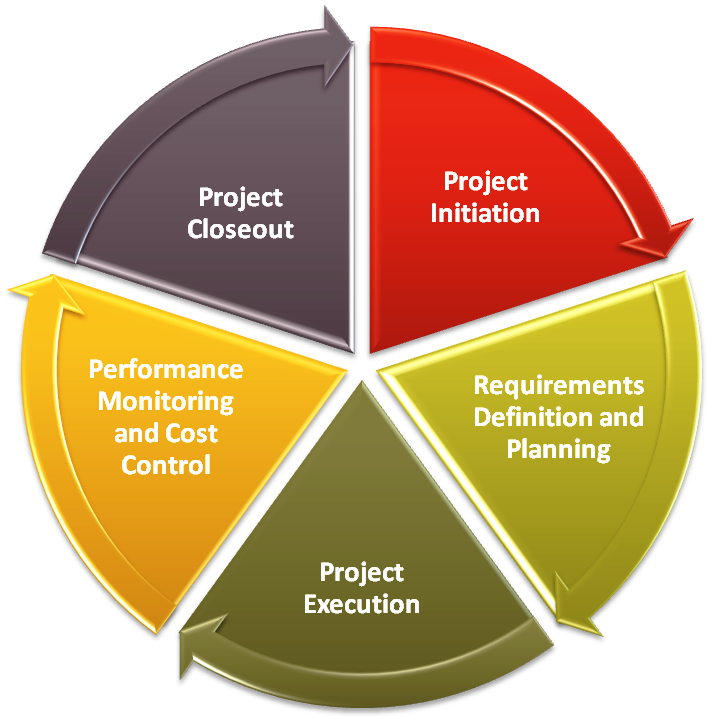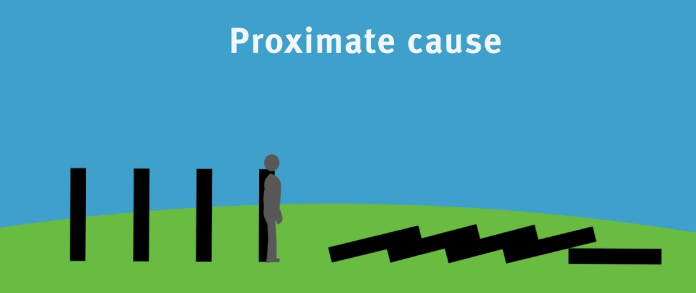The 5 Phases of Project Management
When reviewing any form of Project Management (PM), most agree there are five main phases.

The Primary Five Phases include:
- Initiation
- Planning
- Execution
- Monitoring
- Closure
Initiation
This is when you will research whether the project is feasible and if it should be undertaken. If feasibility testing needs to be done, this is the stage of the project in which that will be completed.
Essentially, this phase allows you determine if the project is even worth it. Many skip this phase and dive into something, without first seeing if the reward is worth the work.
Planning
This phase is key to successful project management whereby it focuses on developing a roadmap that everyone will follow. Many projects rely on other key individuals to accomplish the overall goal.
There are two effective Planning Methods; S.M.A.R.T. and C.L.E.A.R.
Smart Goals
Specific – To set specific goals, answer the following questions: who, what, where, when, which, and why.
Measurable – Create criteria that you can use to measure the success of a goal.
Attainable – Identify the most important goals and what it will take to achieve them.
Realistic – You should be willing and able to work toward a particular goal.
Timely – Create a timeframe to achieve the goal.
Clear Goals
Collaborative – The goal should encourage employees to work together.
Limited – They should be limited in scope and time to keep it manageable.
Emotional
– Goals should tap into the passion of employees and be something they
can form an emotional connection to. This can optimize the quality of
work.
Appreciable – Break larger goals into smaller tasks that can be quickly achieved.
Refinable – As new situations arise, be flexible and refine goals as needed.
Execution
This is the phase where tasks (deliverables) are developed and completed. To assist in executing all these tasks, normally communication is kept through status reports and meetings, development updates, and performance reports.
Monitoring
This phase is all about measuring project progression and performance. You will also need to ensure everything aligns with the project management plan.
Closure
This phase represents the completed project. This phase is after the monitoring and review is complete. All tasks are signed off and considered a success.
Once a project is complete, a PM will often hold a meeting – sometimes referred to as a “post mortem” – to evaluate what went well in a project and identify project failures. This is especially helpful to understand lessons learned so that improvements can be made for future projects.
I personally would also add, ‘educating support staff’, if the service or project involves continued monitoring. This will ensure everyone understands the process, if the application or tool goes done.

Matt Cole has high regard for knowledge share. He has a desire to share critical thinking and information. With a Masters in Information Technology and a wide array of certifications, while not working full-time, he wishes to knowledge share through providing insight, information organization, and critical thinking skills.
#KnowledgeShare | Matt Cole | #infobyMattCole




